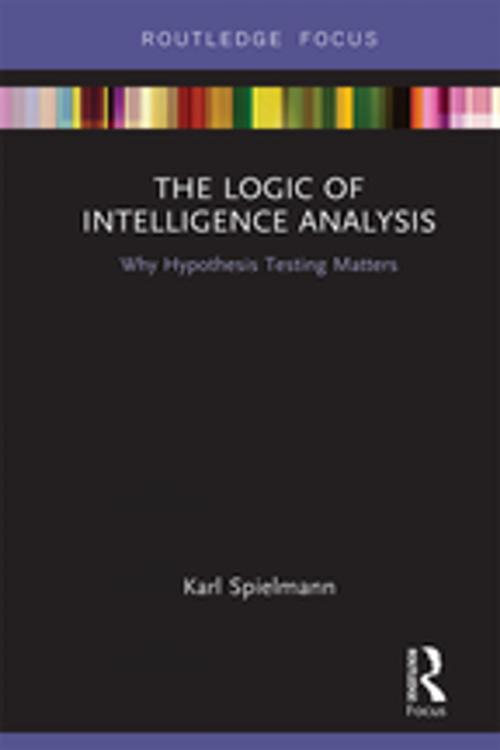The Logic of Intelligence Analysis
Why Hypothesis Testing Matters
Nonfiction, Social & Cultural Studies, Political Science, International, International Security, International Relations| Author: | Karl Spielmann | ISBN: | 9780429891885 |
| Publisher: | Taylor and Francis | Publication: | June 12, 2018 |
| Imprint: | Routledge | Language: | English |
| Author: | Karl Spielmann |
| ISBN: | 9780429891885 |
| Publisher: | Taylor and Francis |
| Publication: | June 12, 2018 |
| Imprint: | Routledge |
| Language: | English |
This book discusses the application of hypothesis testing to the practice of intelligence analysis.
By drawing on longstanding procedures of scientific method, particularly hypothesis testing, this book strongly critiques standard intelligence analytic practices. It shows these practices to be inadequate, as they are illogical in terms of what formal philosophy says any intelligence analysts can realistically be expected to know, and for the future when analysts will face pressures to adapt to digital age modeling techniques. The methodology focuses on identifying and remedying analytic errors caused by analyst cognitive biases and by foreign denial and deception. To demonstrate that it is a practical tool, it walks analysts through a case study, step by step, to show how its hypothesis testing can be implemented. It also invites a comparative test in the real world with any other intelligence methodologies to assess its strengths and weaknesses in predicting the outcome of an actual "live" intelligence issue.
This book will be of much interest to students of intelligence studies, public policy and national security, as well as practitioners.
This book discusses the application of hypothesis testing to the practice of intelligence analysis.
By drawing on longstanding procedures of scientific method, particularly hypothesis testing, this book strongly critiques standard intelligence analytic practices. It shows these practices to be inadequate, as they are illogical in terms of what formal philosophy says any intelligence analysts can realistically be expected to know, and for the future when analysts will face pressures to adapt to digital age modeling techniques. The methodology focuses on identifying and remedying analytic errors caused by analyst cognitive biases and by foreign denial and deception. To demonstrate that it is a practical tool, it walks analysts through a case study, step by step, to show how its hypothesis testing can be implemented. It also invites a comparative test in the real world with any other intelligence methodologies to assess its strengths and weaknesses in predicting the outcome of an actual "live" intelligence issue.
This book will be of much interest to students of intelligence studies, public policy and national security, as well as practitioners.















